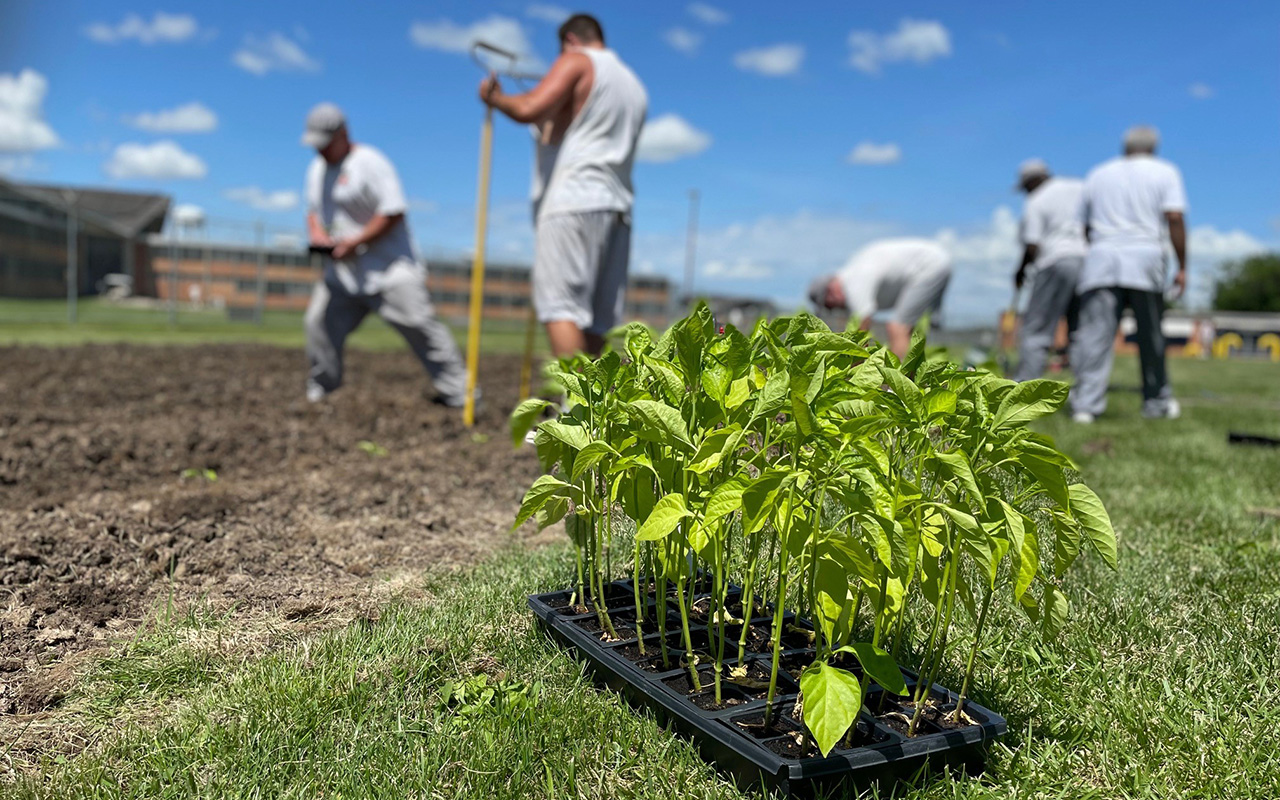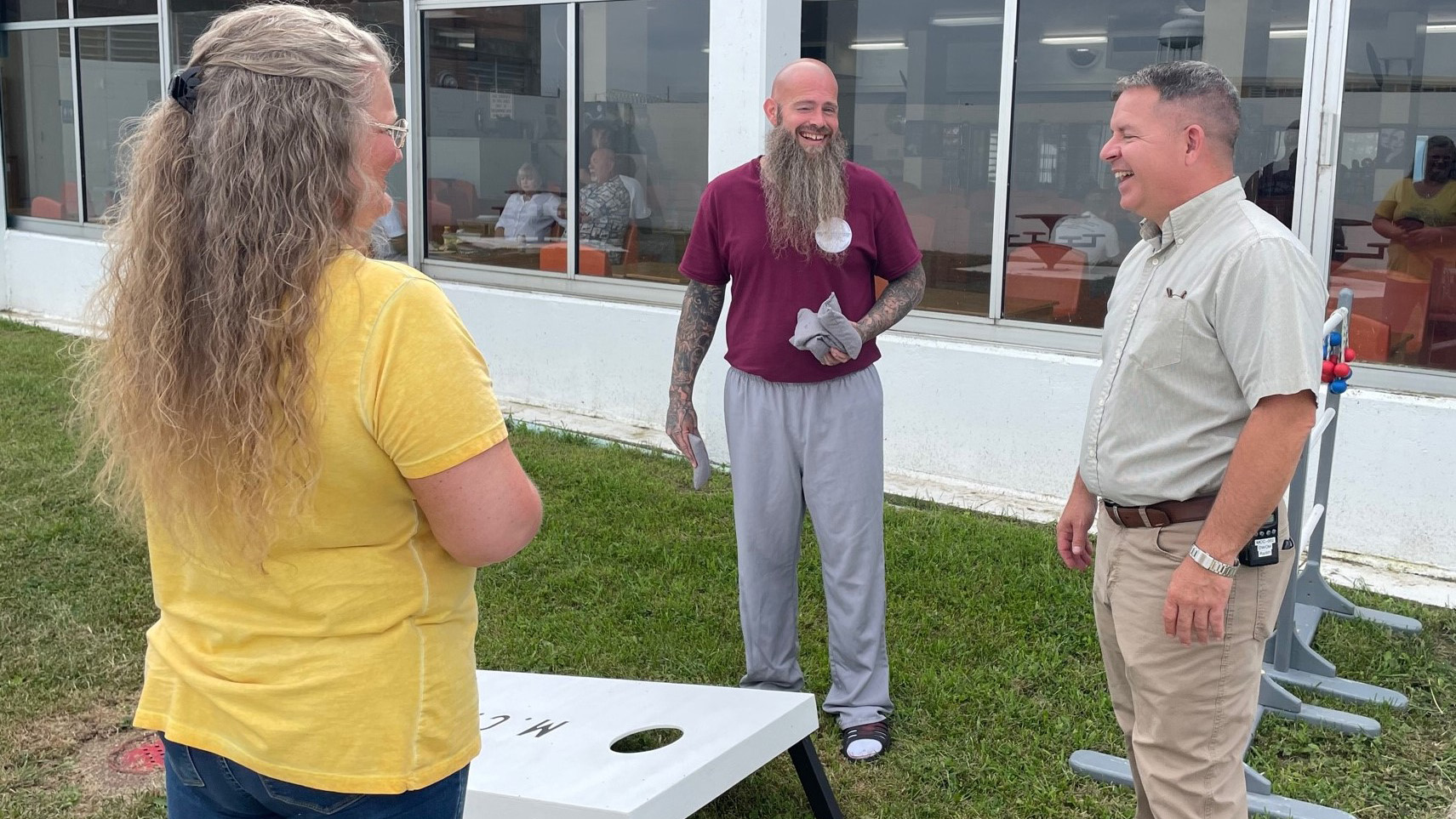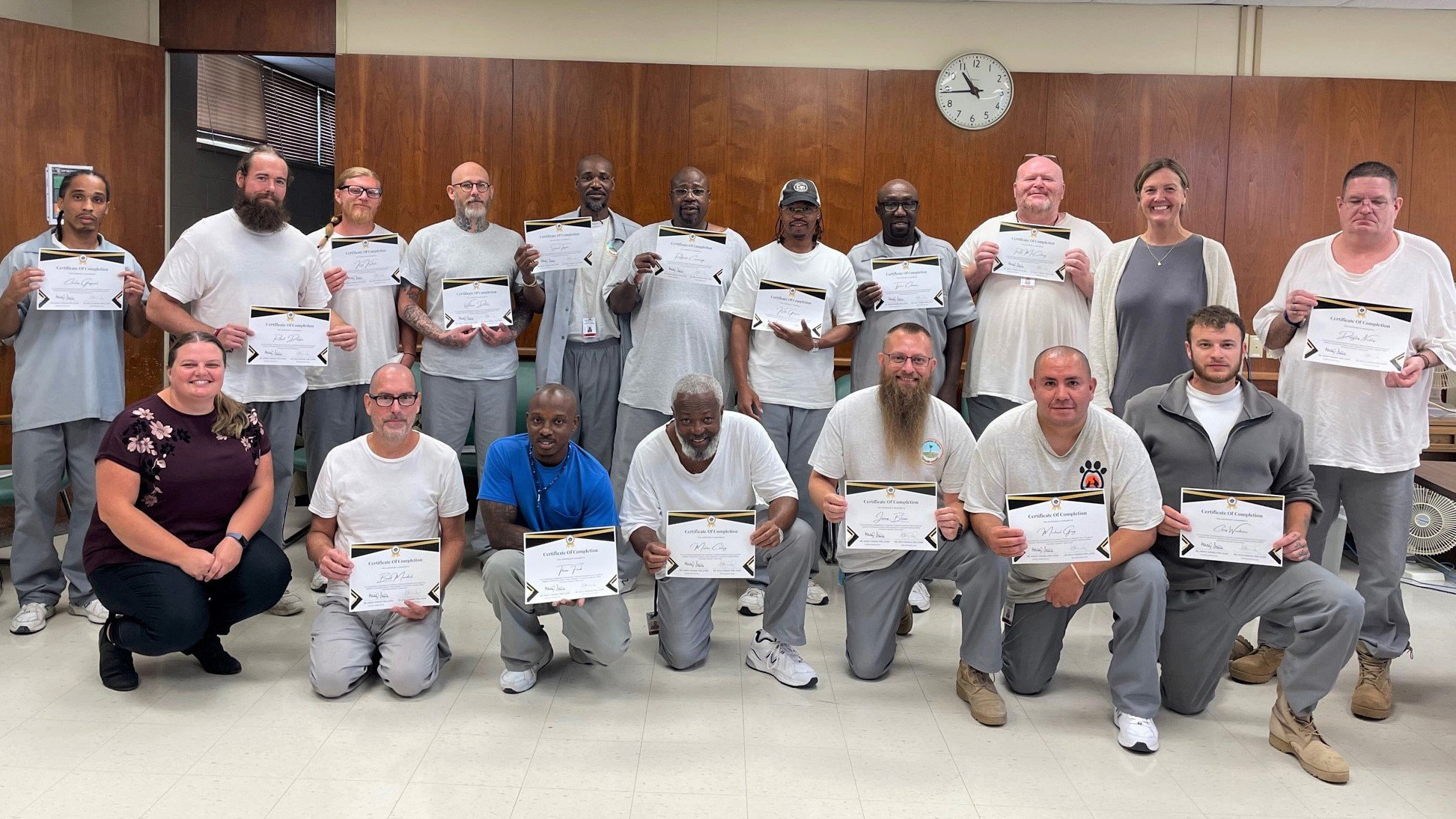Sep. 28, 2023

Story by Ryan Gauthier
On a cold, rainy March day in the chapel of the Moberly Correctional Center, staff members and prison residents perched on metal folding chairs surrounding three sides of a long table. PowerPoint slides splashed color on a nearby wall.
The disparate groups came together to discuss ways they could improve conditions in the prison, with staff members and residents both pitching three innovations they would like to see implemented. After some discussion among the groups and several key stakeholders, they adjourned with handshakes and returned to their respective routines within the prison.
It might not sound particularly memorable, but this cordial meeting was uncharted territory for everyone involved. Kelli Canada, an associate professor in the University of Missouri’s School of Social Work, said getting the two groups to work together toward a common goal is something that simply doesn’t happen in prisons.
“I was like, ‘It’s not a big deal. I’m sure you guys do this all the time,’” Dr. Canada said. “And they said, ‘We have never sat across the table from each other for something like this.’”
Dr. Canada and a team of researchers spent the past few years trying to untangle some of these complex problems and change prisons for the better — for incarcerated folks as well as the people who work there.
The Prison Research and Innovation Network (PRIN) is a consortium of five states working together to leverage research, data and evidence to make prisons safer and more rehabilitative. Missouri is one of five states to receive a $400,000 grant from the Urban Institute to fund research activities and innovations within the prison sites.
Dr. Canada, who co-founded the University of Missouri Center for Criminal and Juvenile Justice Priorities, has been the team lead on the research side. The team includes Mizzou social work faculty member Ashley Givens, Beth Huebner from Arizona State University and Janet Garcia-Hallett from the University of New Haven.
“We all know that prison is terrible,” Dr. Canada said. “The point of bringing everyone together is to talk about ways to make it better.”

A lasting change
The PRIN project has one overarching goal: improving the living and working conditions in prisons for incarcerated folks and the staff members who work there. While that overall goal is rather broad, Canada said everyone involved with the project focused on making changes that wouldn’t disappear once it ended.
“It can be really hard to make meaningful changes,” she said. “But our goal has always been to create a sustainable process where the staff and the incarcerated people have a voice and can talk with administrators about ideas they might have to solve ongoing concerns. We’ve done coaching on being solution-focused and not living in the past.”
Dana Cafourek, who coordinated PRIN for the Missouri Department of Corrections, noted the Moberly Correctional Center (MCC) was a natural choice for a project focused on innovation. It was the first prison in the state to create a veteran’s dorm — a concept that has now been implemented elsewhere in Missouri.
“They already had that mindset of change and understood how changing a culture can make things better for everyone involved,” Cafourek said.
The PRIN team pulled together an innovation advisory group of prison staff, incarcerated people and administrators from the prison and the DOC to talk through some of the goals each group had for the project. The advisory group helped to develop a brief survey with the larger population of shareholders to ensure it was engaging as many people from all areas of life in the prison.
Those responses helped pinpoint several opportunities to improve conditions at the Moberly Correctional Center. On the staff side, organizers worked to overhaul training and onboarding for prison staff. They also added a decompression space — a room that looks, feels and sounds nothing like a prison where staff members can go after traumatic events or before or after a shift.
“We wanted to create a space that was totally removed from the operational aspect of prison,” Cafourek said. “People said I was crazy for wanting to put massage chairs in a prison, but it was meant to be a space for them to come chill out for a minute when they need to decompress.”
Fresh starts
When it came time to implement suggestions from residents of the Moberly Correctional Center, Dr. Canada said there initially was a long and somewhat overwhelming list.
“At one point, we had like 45 different ideas,” she said. “We eventually found some common themes and landed on three key topic areas.”
The PRIN efforts focused on getting fresh fruits and vegetables in the prison canteen, developing more programming on re-entry for people preparing to transition back to life outside of prison, and creating opportunities for family contact within the institution. The push for fresh produce was a relatively easy shift, Dr. Canada said. The residents already had been tending to restorative justice gardens and donating their harvest to area food banks.
Once the Department of Corrections approved the addition of a small garden to grow produce that could be sold in the prison canteen, the residents and staff embraced the opportunity to improve life in the prison. Dr. Canada said they’ve even brought in master gardeners through MU Extension to teach residents about soil health and how to improve their crops.
Cafourek said the additional garden has been a runaway success among residents of the MCC.
“They have taken such ownership of this garden,” she said. “It’s fantastic. They’re growing cucumbers, bell peppers, onions, and cherry tomatoes and selling them in the canteen — with the proceeds being donated to the community.”
Numerous other institutions have reached out to her about the program, Cafourek said, because it’s not always feasible to provide fresh produce in prison. The Department of Corrections has even put a policy in place to allow other institutions to establish similar gardens.

Valued partners
Although the PRIN project is winding down — it runs through Dec. 31, 2023 — there’s an appetite to continue several of the programs at the MCC and to extend those programs to other institutions.
Cafourek said there have been several positive outcomes from the programs. While it could stem from a variety of factors, she said use of force at the Moberly site has decreased over time while overall morale is trending upward.
“The guys that are involved with any of the projects definitely feel heard and that they’ve contributed to something positive,” Cafourek said. “It’s been a nice boost to morale for everyone.”
Ultimately, Dr. Canada said the work they’ve been involved with has been incredibly rewarding for the team — and truly feels like “the epitome of what land-grant institutes can do.”
“We don’t always give enough attention to the people living and working in prisons, even though they account for nearly 35,000 Missourians,” she said. “One of the great things about this project for me is that we’re really using resources from across the university to improve the lives of people who are often ignored. I’m proud we were able to work so collaboratively with the Department of Corrections and that they value the University of Missouri as a true partner in improving things at the state level.”

